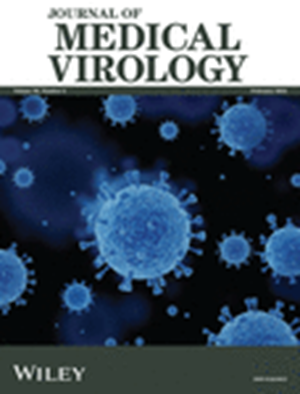摘要
自天花被根除以来,人畜共患病痘病毒(如痘病毒(MPXV))继续对公共卫生构成威胁。找到能够减少痘病毒感染和复制的药物并了解其分子机制,对于控制疫情至关重要。研究表明,Polo-like 激酶 1(PLK1)可促进疫苗病毒(VACV)的感染和复制。本研究证实了 PLK1 抑制剂 HMN-214 和 ON-01910 对 A549 细胞中 VACV 复制的影响。经处理的细胞在感染后病毒滴度和DNA载量均显著降低。此外,ON-01910 还在体外对块状皮肤病病毒(LSDV)和传染性牛鼻气管炎病毒(IBRV)表现出广谱抗病毒活性。在 A549 细胞中敲除 PLK1 也会导致 VACV 蛋白表达、病毒滴度和 DNA 水平的降低。进一步的分析表明,VACV 感染会导致 PLK1 在病毒工厂附近聚集。然而,尽管ON-01910具有很强的体外效应,但它并没有显著减少VACV在小鼠体内的复制。这些发现凸显了 PLK1 在 VACV 复制过程中的关键作用,以及其作为抗病毒疗法靶点对付矫形痘病毒的潜力。Since the eradication of smallpox, zoonotic poxviruses, such as the mpox virus (MPXV), continue to pose a threat to public health. Identifying drugs that reduce poxvirus infection and replication, as well as understanding their molecular mechanisms, is essential for epidemic control. Polo-like kinase 1 (PLK1) has been shown to facilitate vaccinia virus (VACV) infection and replication. This study confirms the effects of the PLK1 inhibitors HMN-214 and ON-01910 on VACV replication in A549 cells. Both viral titers and DNA loads were significantly reduced in treated cells after infection. Additionally, ON-01910 demonstrated broad-spectrum antiviral activity against the lumpy skin disease virus (LSDV) and the infectious bovine rhinotracheitis virus (IBRV) in vitro. PLK1 knockdown in A549 cells also led to a reduction in VACV protein expression, viral titers, and DNA levels. Further analysis showed that VACV infection leads to the accumulation of PLK1 near viral factories. However, despite its strong in vitro effects, ON-01910 did not significantly reduce VACV replication in mice. These findings highlight the critical role of PLK1 in VACV replication and its potential as a target for antiviral therapy against orthopoxviruses.

 求助内容:
求助内容: 应助结果提醒方式:
应助结果提醒方式:


